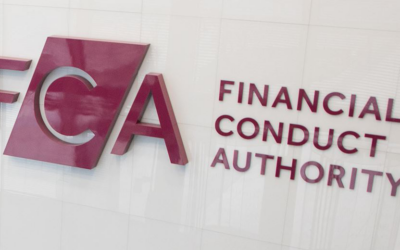Long-term investment planning and diversification is an IFA’s bread and butter. Most IFAs have put an emphasis on educating clients so they do not panic when something comes out of left field and, as of last year, 10% portfolio drop letters started arriving.
But coronavirus was not expected. It was not in any of those asset managers’ ‘10 predictions for 2020’ lists. Its outcome is also unknown.
Last week, 9 March was dubbed Black Monday. The FTSE 100 closed 7.7% lower, falling below the 6,000 mark for the first time in three years. Readers will remember the original Black Monday, 19 October 1987, in which the FTSE 100 plunged 10.8% and the S&P 500 plummeted 20.5%.
IFAs will also remember the severe acute respiratory distress syndrome (Sars) outbreak of 2003. Sars did indeed put a dent in markets that year. But at its zenith, Sars infected 8,000 people – including four cases in the UK – and killed an estimated 800 worldwide. It also coincided with the invasion of Iraq, but a year later the S&P was up around 20%.
At the time of writing, the coronavirus Covid-19 has infected over 116,359 people – including 596 cases and 10 deaths in the UK – and killing over 4,091 people worldwide.
During the Sars outbreak in 2003, world markets were indeed affected. Luxury goods, travel, restaurants and tourism taking the biggest hits. But, the main difference between the Sars 2003 market panic and the back-to-back market tanking of the past fortnight is that Sars was mostly contained in mainland China. The coronavirus is not, and it is not going away anytime soon.
The US, Ireland and Australia have already started talks of injecting billions of dollars worth of stimulus measures into their economies, to at least soften the blow if not avoid recession.
The UK, as we learnt during the Budget announcement last week, is also implementing substantial measures to stave off an economic calamity. Chancellor Sunak announced a £30bn spending package to soften the blow of coronavirus; with benefits packages, sick pay relief and a £500m hardship fund among many of the benefits announced.
IFAs can deal with uncertainty. It is a common theme in world markets. But there is uncertainty, and then there is the unknown.
If coronavirus spreads further, leading to a majority of the working population being forcibly or voluntarily quarantined, we will be floating in the proverbial creek, with one flimsy paddle, and into the unknown.
Too pessimistic?
Some IFAs who spoke with New Model Adviser® believed that the coronavirus-led market drops were a mere flash in the plan, and this would soon blow over. Others were not as confident that things would return to normal soon.
Although world markets have dropped twice in recent weeks due to coronavirus concerns, some IFAs are still playing the long game and advising clients to wait out the storm.
Apart from hand washing, isolation and travel bans, there is no rock-solid game plan to tackle the virus, said managing director of Derbyshire-based Red Circle Financial Planning Darren Cooke (pictured below). He claimed predictions of a recession were far too pessimistic.

‘The market drops we have seen are essentially panic,’ Cooke said.
‘Look what happened in late 2018 when the market dropped. Everyone said we were headed for a recession, then three months later everyone was back to where they started and making a profit.’
Cooke said that as people were staying at home due to coronavirus fears, there was always going to be a knock-on effect to world markets. But he added that he was advising clients with adequate capital to increase their investments in the current climate.
‘There has been a drop in transportation, as people are flying and travelling less, and it’s putting pressure on. There’s a fall in demand, so prices will fall,’ he said. ‘But, if you have money, you should be buying into the market. Someone said last week: “The stock market is the only thing that people want to sell when the price drops and buy when the price is up” and they’re right. This is just panic.’
Media hype
Chris Thompson, chartered financial planner at Chelmsford-based Montage Wealth, said while the firm has educated clients on the possibility of market falls, there is still work to do calming nerves in real life.
‘The recent dip in world markets has been sufficiently hyped up by the mainstream media that we have had a couple of clients call looking for reassurance,’ he said.
‘But we spend a lot of time preparing clients for these scenarios and stress testing the limit of their tolerance to temporary drops in value. However, the reality for clients when the proverbial hits the fan can be very different.’
Thompson said long-term investors were always going to have to deal with bumps in the road and, like Cooke, he would be encouraging clients to invest. However, he did admit there was no way of knowing when the panic would subside.
‘It’s impossible to know when we will come out the other end of this. We need to look at this with some perspective, and appreciate that long-term investors are going to endure falls like these a number of times over a lifetime. It’s part and parcel of how markets work. For the lucky few that have some cash available to invest, they will be taking advantage of the recent dip.’
Jillian Thomas (pictured below), managing director of Sheffield-based Future Life Wealth Management agreed with the methodology of re-investment while markets were potentially at their lowest. She warned, however, that this most recent drop in markets may be just the beginning of a larger slide.
‘Many clients have used this pullback to get money into the investment markets, at a more competitive unit price. But, we have to be aware that we may still see volatility,’ Thomas said.
‘There is no doubt that there will be further reactions on the equity or investment markets, but the impact of this virus could, as long as your timeline allows, provide you with long-term fund performance growth.’

A petrifying plunge
Almost every IFA New Model Adviser® has spoken to following the market sell-offs has subscribed to the ‘keep calm and carry on’ mantra.
But others, such as Darren Lloyd Thomas, managing director of Pembrokeshire-based IFA Thomas & Thomas Finance, thought last Monday’s chaos was just the start of a difficult period.
‘It’s a long way down from here,’ said Thomas.
‘As things stand this has the potential to make the credit crunch look like a slight correction. Why? Because shutting down whole sections of the global economy all at once is far more damaging than the deepest recession.’
With more people confined to their homes, it might seem like a great time to be backing subscription services like Netflix or delivery businesses like Amazon.
But as it happens Netflix’s share price is around the same point as it was last year, defying the rout. Analysts point out that its subscription-based model will not benefit from increased hours at home. In fact, any belt tightening could actually result in users cancelling their subscriptions.
‘There will be winners and losers here,’ said Thomas. ‘Clearly the Faang [Facebook, Amazon, Apple, Netflix and Google] stocks will be back in fashion again for a while, as more people sit at home and amuse themselves with online purchases.
‘Supermarkets, emergency foods and pharma stocks look good in the short term. Long-term, even these stocks will falter if this is allowed to play out past a few months. It’s scary stuff.’
As some of the general public spend these coronavirus-laden days stocking up on toilet paper or dried pasta and avoiding other people, IFAs must spend theirs ensuring they and their clients do not lose their cool in a period of uncertainty.
What effect coronavirus has, and how the markets react moving forward, is anyone’s guess, but IFA optimism will go some way to easing client fears.







